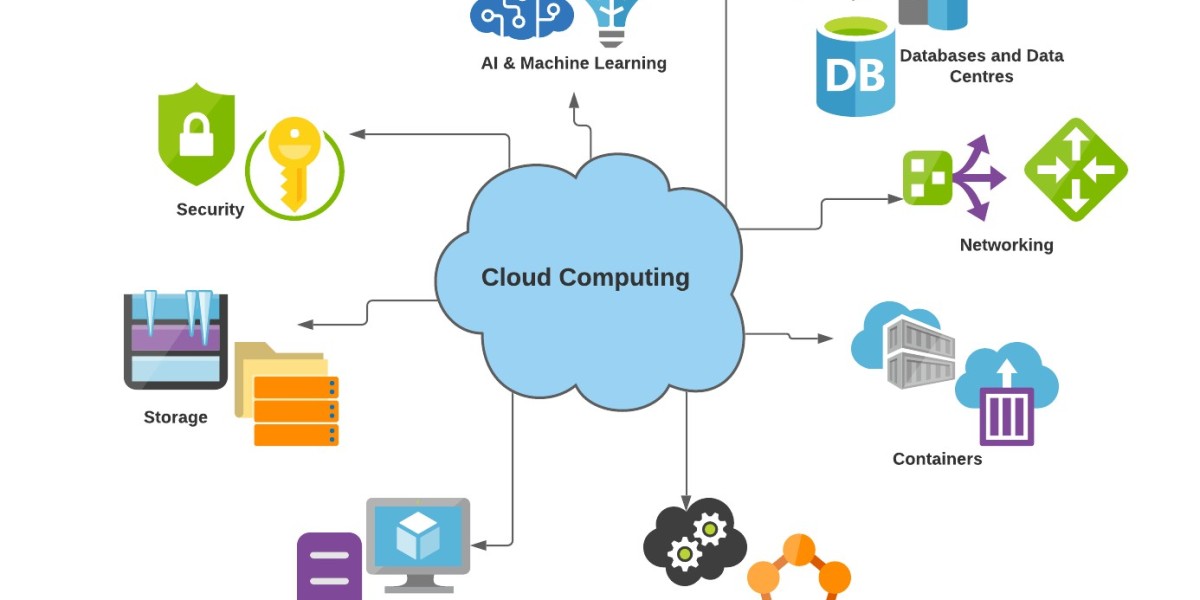Introduction of Cloud Computing
This article explains the importance of cloud computing, how it works, its benefits, and how it is being used, along with its real-life examples. The goal is to make the concept simple or easy to understand, so that till then it can be created for any person who wants to answer the question.
Cloud Computing Is very Important in today’s digital era, there has been a complete change in the way businesses and individuals store, access or manage their data. One of the most important factors leading to this change is cloud computing. Cloud computing means the delivery of computing services through the Internet. Instead of running applications on a local computer or server, you can use login to make tasks more efficient and in a more efficient manner.

What is cloud computing?
Cloud computing means using the internet to access data, applications, or services instead of hosting and managing them on a local computer or server. The word “Cloud” is a synonym for the Internet. In cloud computing, resources are available on the cloud and can be accessed anytime or from anywhere.
There are three main types of cloud computing services:
- laaS(Infrastructure as a Service): Provides virtualized computing resources on the Internet. Example: Amazon Web Services (AWS), Microsoft Azure
- paaS(Platform as a Service): Provides a platform that allows customers to develop, run, and manage applications. Example: Google App Engine
- saaS(Software as a service): Software applications delivered via the Internet. Example: Google Workspace (Gmail, Docs), Microsoft Office 365
Why is cloud computing important?
- Cost saving
Cloud computing reduces the cost of purchasing expensive hardware or software. Companies do not have to afford to build physical servers or hire large IT teams. For example, a startup can host its website or database on AWS or Google Cloud without investing in a physical server.
- Flexibility and scalability
Cloud services allow businesses to scale up or down their resources based on demand. For example, during the festive season, e-commerce websites like Flipkart can handle more traffic by increasing their server capacity by using cloud services.
- Accessibility and Remote Work
With cloud computing, employees can work from anywhere with an internet connection. Tools like Google Drive or Microsoft Teams enable remote collaboration. This has become especially special during the COVID-19 pandemic.
- Data Backup and Recovery
Cloud providers offer automatic backups and disaster recovery options. This ensures that data is not lost due to hardware failure or accidents. For example, if your local computer crashes, the files stored on Google Drive will remain safe.
- Security
Cloud providers invest heavily in security. They use encryption, firewalls, and regular security updates. However risky they are, most of the vehicle protection they provide is provided by an individual or a business.
- Environmental Benefits
Cloud computing can reduce energy use or carbon emissions. Companies need to run efficient servers with centralized data centers optimized for energy efficiency.
Examples of cloud computing in daily life
- Streaming services Platforms like Netflix, Amazon Prime Video, or Spotify use cloud computing to deliver content to the user, rather than storing it on a cloud server.
- Social media Facebook, Instagram, or Twitter, can store users’ data or manage millions of users through a cloud platform. Every photo uploaded or message sent is stored in the cloud.
- E-commerce websites like Amazon, Flipkart, or Shopify rely on cloud infrastructure. This helps in increasing traffic, tracking, managing leads, and storing customer data securely.
- Online learning tools like Zoom, Google Classroom, or Coursera are cloud-based. They allow users to chat or interact with teachers online, submit assignments, or access learning materials.
- Smartphones mostly backup data like messages or photos to cloud services like iCloud or Google Drive.
Cloud Computing in Business
- Startups and small businesses often use cloud services to reduce costs or grow faster. Instead of setting up expensive IT infrastructure, you can use platforms like AWS or Google Cloud to create or host applications.
- Large enterprises use cloud computing for data analysis, customer management, or much more. For example, Coca-Cola uses the cloud to collect consumer insights or improve marketing strategies.
- Health care uses cloud platforms to securely store hospital records, collate information with doctors, or use AI tools for diagnosis. During COVID-19, cloud computing helped track and manage cases
- Banking and finance banks use cloud computing for fraud detection, customer service, or mobile banking apps. Cloud systems help in processing large amounts of data quickly and securely
Changes in Cloud Computing
- Without an internet connection, it would be very difficult to access cloud services.
- Some businesses concerned about data privacy or security are concerned about storing sensitive data on third-party servers. However, most of the studies done by the astronauts do not match the needs.
- Limited control of cloud services depends on the data provided by the business if a problem is detected in the data so that the services can be affected.
The Future of Cloud Computing
There is hope for her due to the rise of cloud computing.
- Artificial intelligence (AI): Cloud platforms provide additional AI services to businesses.
- Edge computing: Data processing will be closer to the source, so the delay will be less.
- The hybrid cloud will become popular as a combination of public or private cloud services.
- Common uses include using cloud storage tools or backup services.








